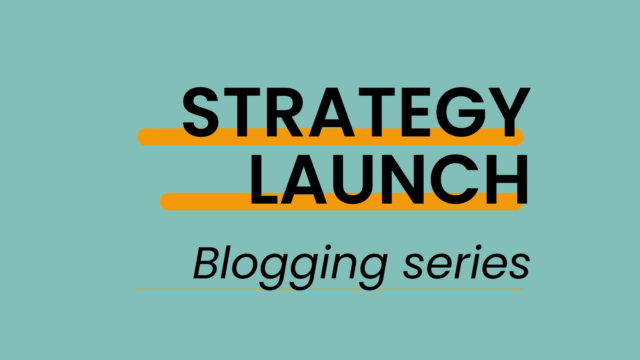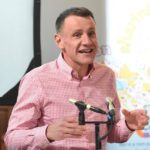Strategy learning blog (3/6): Learning matters when building co-operative communities
In October 2022, we released our five-year ‘Building communities of the future together’ strategy. This blogging series was initially hosted on the Co-op blog to share everything we’d learned and developed from April to October for Co-op Members. We’ve recreated it here for our own subscribers. Please note any call to action is now closed. Thank you to everyone who supported our strategy development. We look forward to co-operating with you again soon as we build communities of the future, together.

When was the last time you heard the phrase ‘world class’? Sporting fans like me will hear it all the time. It’s how we ‘big up’ the next exciting football star. Foodie fans will hear it, too (hopefully when describing Co-op’s latest ‘Irresistible’ range product).
For our charity, the Co-op Foundation, we attach the phrase ‘world class’ to our attitudes towards learning. Because, put simply, we want to be the very best we can be.
We’ve been looking at what this means in the context of our new strategy, due to launch later this year. This strategy directs us to use our funding to create future communities that are fair and built on co-operative values.
We firmly believe that we’ll only be able to build these communities if we learn about the best way to make them fair and co-operative as we go. Below are a few highlights of what we’ve uncovered so far from speaking to foundations and grant makers from all over the world.
Co-op Members running community groups can keep up to date with our strategy work and future funds by following us on Twitter.
Lesson one: Know what you want to learn
It’s rather obvious when you say it out loud, but prioritising what you want to learn before you start a project is easy to forget in the hustle and bustle of being a funder.
But if we want to be world class at learning, we need to focus on this commitment at the start of every programme we run. And we should be forward thinking, too. This means using learning as a way to improve as well as reflect, and sharing what we uncover so others can get better as well. As a funder with a co-operative difference, this is something we feel particularly passionate about and it’s something we’ve already started. Youth groups can read our learning from tackling youth loneliness in this learning summary.
Lesson two: Only measure what matters
In 2021, we joined a community of flexible funders committed to open and trusting grant making, coordinated by the Institute for Voluntary Action Research (IVAR).
Within these commitments, we talk about being proportionate in what we ask our partners to do, recognising the pressures they face day to day. If we want to be world class at learning, we must extend this to how they report and learn.
As such, we’ll only ask partners to share learning that:
- Is useful, and that we’ll use to improve our work
- Is easily adaptable so our partner can use it in other contexts, like their own comms or delivery
- Provides real inspiration to help us all get better
- Empowers the people and communities we aim to serve
Lesson three: Talk about change
If you ask a funded partner to provide data or to tell you what they’ve learned through your work together, we believe you need to tell them what you’re doing with that information.
This includes talking about and sharing what we’re going to change. It’s ethically the right thing to do and it makes sense if we want to use our learning to build more co-operative communities beyond our own immediate reach.
Next steps
Becoming world class at learning is more than a tagline – it’s an essential part of how we plan to build future communities and deliver on Co-op’s vision of ‘Co-operating for a Fairer World’.
This blog is just a snapshot of what we’ve learned so far but it’s also a work in progress. Co-op Members and community leaders can also subscribe to our own Foundation blog to keep up to date with our work.
